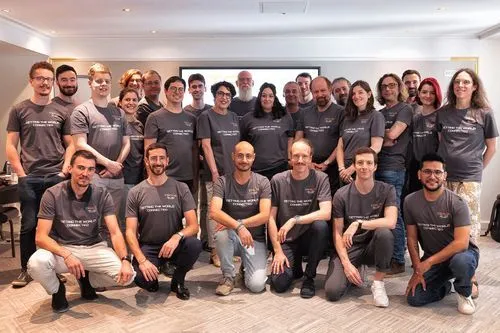"What Is Remote Desktop? How IT Teams Actually Use It to Operate and Support RDS at Scale"
What is Remote Desktop in real RDS environments? Learn how IT teams use RDP daily to operate, secure and monitor Remote Desktop Services at scale.
Would you like to see the site in a different language?
RDS TOOLS BLOG
RDS-Advanced Security 6.4 adds 16K addresses to the Hacker IP Protection to target KillNet group
)
RDS-Tools, provider of remote desktop management solutions, is thrilled to announce the release of RDS-Advanced Security 6.4. This latest version of their cybersecurity software offers robust protection for remote desktop environments. With significant performance improvements, RDS-Advanced Security 6.4 delivers enhanced efficiency, ensuring a secure computing experience for users.
On January 30th, a series of distributed denial-of-service (DDoS) attacks targeted numerous medical centers across the United States, including prestigious institutions like Stanford Healthcare, Duke University Hospital, and Cedars-Sinai. In response to this evolving threat landscape, RDS-Tools has incorporated an extensive database of over 16,000 new IP addresses into the hacker IP list of RDS-Advanced Security. This proactive approach specifically addresses KillNet DDoS attacks, automatically blocking millions of well-known cybercriminal IPs. The feature provides users with efficient and visible protection against these malicious attacks.
The additional IP addresses have been carefully selected to target the KillNet group, offering a comprehensive solution for institutional and public users of RDS-Advanced Security who face a higher risk of such attacks.
KillNet is an activist hacker group associated with pro-Russian sentiments. The group gained notoriety for executing DoS and DDoS cyberattacks against government institutions and private companies during the Russian invasion of Ukraine in 2022. Formed around March 2022, the group's founder, known as "Killmilk," orchestrated multiple attacks against institutional and governmental websites in various European states, the United States, and Japan. The objective was to impede actions supporting Ukraine by rendering platforms inaccessible, stealing sensitive information, and disrupting production systems.
Apart from the enhanced protection against KillNet attacks, RDS-Advanced Security 2.0 includes several other notable features. The update brings performance improvements to Working Hours restriction, Bruteforce Protection, Ransomware Protection, and event analysis related to databases. Users can now add whitelisted programs through a command line interface, enabling greater control over their secure environment. The update also enhances responsiveness during event analysis, ensuring swift action against potential threats.
To learn more about the Hacker IP Protection feature in RDS-Advanced Security 6.4, check the online documentation available at https://docs.rds-tools.com/advanced-security/hacker-ip. For those interested in experiencing the software firsthand, a trial version of RDS-Advanced Security is available for free download from the RDS-Tools website at rds-tools.com.
Safeguard your remote desktop infrastructure with RDS-Advanced Security and stay protected against evolving cyber threats.
Simple, Robust and Affordable Remote Access Solutions for IT professionals.
The Ultimate Toolbox to better Serve your Microsoft RDS Clients.
 Get in touch
Get in touch
